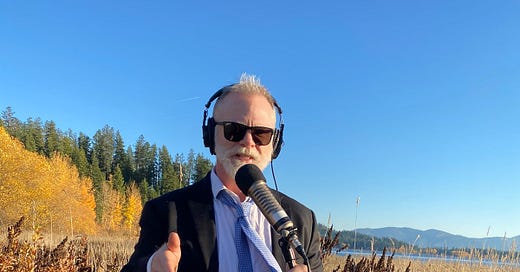THE THESIS: Just as Joe Biden cannot understand what the scheming and evil people are doing to use under cover of Covid, he doesn’t get it on energy or food.
THE SCRIPTURE & SCRIPTURAL RESOURCES:
Jesus went through all the towns and villages, teaching in their synagogues, proclaiming the good news of the kingdom and healing every disease and sickness.
What Did Jesus Actually Have to Say about Money?
THE NEWS & COMMENT:
[AUDIO] - President Macron attempts to explain the reality of the petroleum markets to the Figurehead
[AUDIO] - Oil reached 'peak' prices, food still on the rise: Billionaire supermarket owner . . . United Refining Chairman and CEO John Cats-imat-idis, who is also the billionaire owner and CEO of New York City supermarket chain Gristedes, weighs in on whether inflation could start to come down soon.
In Indiana, 9,200 acres of farmland to be used for a massive solar farm
In May 2022, a number of experts started speaking out about the inevitability of coming food shortages. The United Nations Secretary-General António Guterres warned of "the specter of a global food shortage in coming months" unless international action is taken,6 and The Economist featured "The Coming Food Catastrophe" on its cover.7
During the 2022 World Economic Forum (WEF) meeting in Davos, Kristalina Georgieva, managing director of the International Monetary Fund, told attendees that "the anxiety about access to food at a reasonable price globally is hitting the roof,"8 and President Biden, in March 2022, told reporters that food shortages are "going to be real."9
A May 30, 2022, Reuters report10 showed the global food price index had risen 58.5% above the 2014-2016 average as of April 2022, due to a convergence of "post-pandemic global demand, extreme weather, tightening food stocks, high energy prices, supply chain bottlenecks ... export restrictions and taxes" combined with Russia's invasion of Ukraine.
Together, Russia and Ukraine account for as much as 12% of all globally traded calories,11 making the timing of the conflict a particularly perilous one for the world. Not surprisingly, countries that are heavily reliant on imports have seen the steepest food price increases.
In early April 2022, Rockefeller Foundation president Rajiv Shah and Sara Menker, founder of Gro Intelligence, published an op-ed12 in The New York Times blaming "Putin's war" for the looming food crisis but, clearly, we were already on the path toward global famine long before Putin entered Ukraine.
Weather, for example — whether natural or manufactured — plays an important role. As noted by Shah and Menker, "historic drought" plagues many parts of the world, including the U.S. Midwest, Brazil, Argentina, North Africa, the Middle East13 and India.14 Meanwhile, China's agricultural lands are drowning under the "heaviest rains in 60 years."15














Share this post